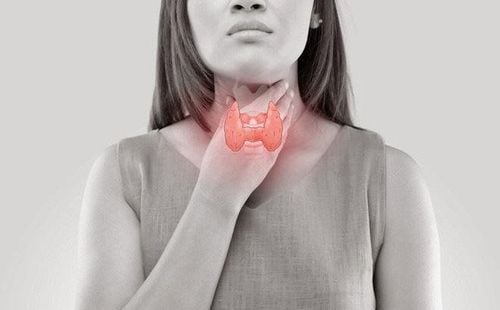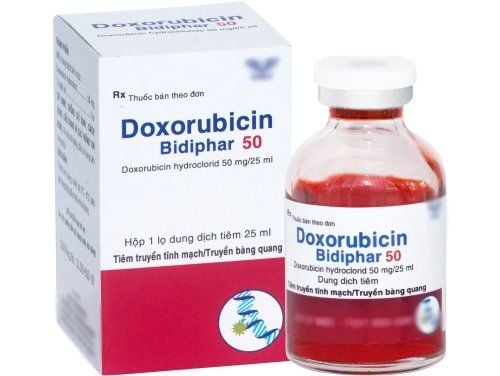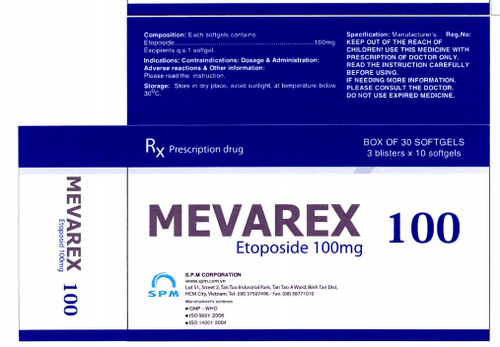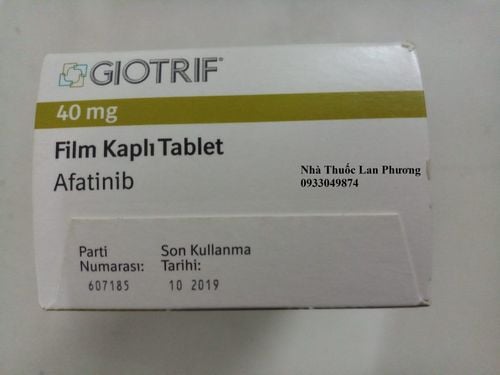This is an automatically translated article.
Hypercalcemia can be seen in some patients with cancer, which makes the condition worse. There are many causes of hypercalcemia in cancer, but whatever the cause, this is a dangerous condition that needs to be detected and treated urgently.
1. What is hypercalcemia?
Calcium in the body is mostly stored in the bones and a very small part of this calcium exists in the blood. Although only a small amount of calcium in the blood, it is very important for the body.
Calcium is involved in nerve conduction, muscle and bone formation activities, so even a small change can cause the nervous system and muscles to function abnormally, especially the heart muscle, which is dangerous for patients. .
The amount of calcium in the blood is controlled by many different factors, the most important of which are parathyroid hormone and kidney. Parathyroid hormone is secreted by the parathyroid gland with the effect of regulating the amount of calcium in the blood, increasing the amount of calcium in the blood, the kidneys have the effect of eliminating excess calcium from the body.
Hypercalcemia is defined as a condition where the amount of calcium in the blood is higher than normal. Hypercalcemia is a common syndrome in cancer patients, with an incidence ranging from 20 to 30%. Cancer patients with hypercalcemia syndrome often have a poor prognosis, high mortality rate. Some cancers that can increase blood calcium include: breast cancer, lung cancer, multiple myeloma, blood cancer, kidney cancer, gastrointestinal cancer, lymphoma, and head and neck cancer. ..
2. Causes of hypercalcemia in cancer
Hypercalcemia in cancer can be caused by many different causes, but all follow 3 common mechanisms including:
Because cancer affects bones or metastases bone causing bone destruction Calcium in the muscle Body is mainly concentrated in bone, when there is bone destruction, calcium follows into the blood. Cancers that affect bone, such as multiple myeloma, acute leukemia, and bone metastases, have invaded the bone causing bone destruction. Parathyroid hormone secretion Parathyroid hormone (PTH) helps control blood calcium levels, PTH stimulates the excretion of calcium from the bones into the blood and increases the reabsorption of calcium in the renal tubules, thereby increasing the amount of calcium in the blood. amount of calcium.

Hormon tuyến cận giáp có vai trò kiểm soát lượng canxi trong máu người bệnh
Some cancers can produce a protein that behaves very similarly to parathyroid hormone. This protein causes bones to increase the release of calcium into the bloodstream and affects the kidneys' ability to remove excess calcium from the blood.
Some tumors produce 1,25-dihydroxy vitamin D Vitamin D helps increase the absorption of calcium in the small intestine into the blood, in addition to causing bone destruction.
In addition to the 3 main mechanisms above, there are a number of other factors that also increase the risk of hypercalcemia in cancer patients, including:
The patient is dehydrated due to vomiting and diarrhea, reducing the amount of urine, making it difficult for the kidneys in removing excess calcium from the blood. Some patients, for many reasons, often lie down or lack physical activity, which can cause bones to break down easily, releasing calcium into the blood.
3. Signs of hypercalcemia
Calcium has an effect on neuromuscular transmission, so when an increase in calcium occurs, it can cause manifestations in many different organs.
Clinical symptoms suggestive of hypercalcemia are symptoms on organs including digestive, nervous, cardiovascular, renal such as:
Nerve: Causes muscle pain, cramps, muscle spasticity, proximal paralysis, fatigue, depression, headache, somnolence, and possibly coma. Gastrointestinal: Anorexia, nausea, vomiting, constipation, abdominal pain, abdominal pain that can be as severe as acute pancreatitis or pain resembling intestinal obstruction. Cardiovascular: Calcium is involved in autonomic neurotransmission in the heart and is involved in muscle contraction. When the amount of calcium in the blood increases, it causes vasoconstriction, increased heart rate or sometimes arrhythmia, high blood pressure. The extent of cardiovascular damage depends on the level of hypercalcemia, cardiovascular complications increase mortality in patients with hypercalcemia. Kidneys: It is possible to experience pre-renal failure due to dehydration, but also kidney failure in the kidneys, damage to the kidneys due to calcium deposition in the kidneys, causing oliguria, anuria, in addition, calcium is also deposited in the kidneys. vessels, skin and lung organization.

Tăng canxi huyết gây ảnh hưởng đến nhiều cơ quan khác nhau trong cơ thể con người
However, the clinical manifestations of hypercalcaemia are often nonspecific, because these same symptoms are also seen in cancer patients or as a result of cancer treatment. sometimes only symptoms of fatigue, digestive disorders, behavior changes...
Thus, there are many causes of hypercalcemia in some cancer patients but mainly related to 3 common mechanism and has many influencing factors. Hypercalcemia aggravates the condition, so it should be detected early. When seeing any suspicious signs, it is necessary to notify the treating doctor for early detection and treatment.
If you have a need for consultation and examination at Vinmec Hospitals under the national health system, please book an appointment on the website for service.
Please dial HOTLINE for more information or register for an appointment HERE. Download MyVinmec app to make appointments faster and to manage your bookings easily.













